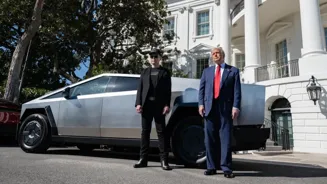Japanese have never been enthusiastic about American cars not because of tariffs or any conspiracy, but because of a simple reason that they do not find American cars good enough for them. This is also not a new phenomenon borne out of the decline of American manufacturing sector.
Since World War II, the United States has been the principal ally of Japan — the country was under complete US occupation till 1952. But that could never result in American cars becoming popular in Japan.
Last year, top 10 car-sellers in Japan were all Japanese, with Toyota being the best-seller. Among American companies, Mercedes-Benz had a market share of around 1 per cent and General Motors and Tesla had a share of less than 1 per cent each.
The condition for American companies has been such that Ford exited Japan altogether in 2016 after saying that it had no path to profitability in the country.
But why don't Japanese want US cars?
There are a host of practical, economic, and cultural reasons why Japanese do not prefer to buy American cars despite the absence of any tariffs.
Firstly, Japanese customers prefer compact, fuel-efficient cars that suit Japan's narrow roads and streets and tight parking spaces. American cars are usually larger and do not suit such conditions. Hence Japanese prefer domestic cars that are suited for such conditions.
Secondly, Japanese cars are better than American cars when it comes to producing hybrid, fuel-efficient models.
Thirdly, Japanese customers tend to be loyal to domestic brands like Toyota, Nissan, and Honda, and prefer them over foreign brands.
Fourthly, Japan has high safety standards and many American cars simply do not meet them. Japan also has a right-side driving system as opposed to left-side driving system of the United States. This means that many American cars need to be modified, creating additional burden on buyers.
Fifthly, many American cars have servicing issues as service centres for such cars and the availability of spare parts and machinery can also be problematic.














